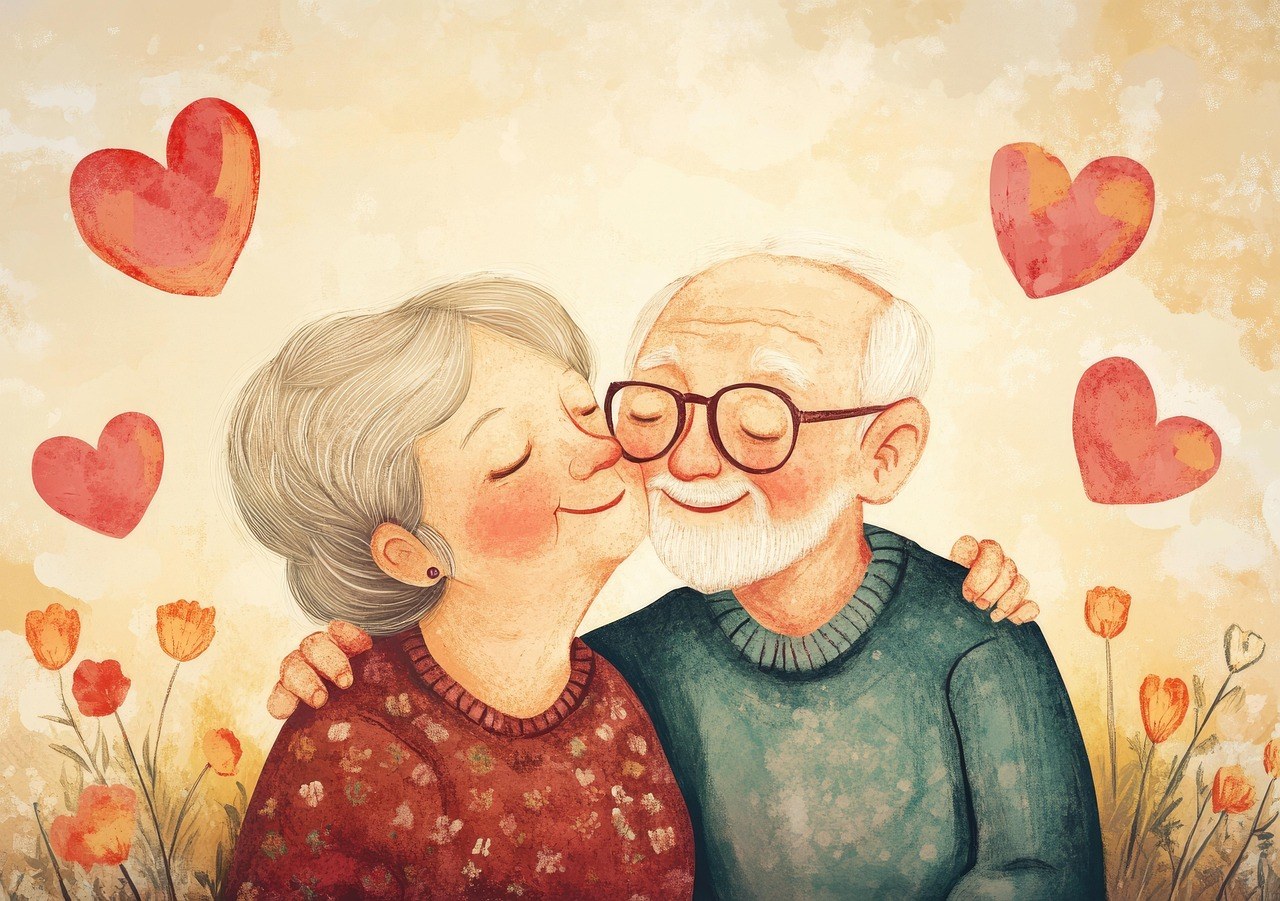When love ends abruptly, ordinary routines feel unfamiliar and even friendly faces can seem far away. You poured time, trust, and hope into a shared future, only to find yourself starting again with tender edges. It’s natural to withdraw for a while and guard what still feels fragile. Yet the same heart that knows loss also remembers warmth – and with care, patience, and self-respect, you can fall in love again without abandoning your wisdom. This guide reframes the aftermath of heartbreak, showing you how to grieve honestly, rebuild your sense of self, and, when you’re ready, fall in love again on your own terms.
Why opening up can feel impossible at first
After a breakup, the world tilts. The confidences you once offered so easily now feel costly; the routines that tethered your days are suddenly gone. You invested emotional energy, made yourself vulnerable, and believed in a bond – and when it ended, the shock reverberated through everything. That disorientation is not a failure of character; it’s a healthy response to disruption. The mind tries to protect you from more pain, so it scans for risk and clings to certainty. That’s why letting someone new in can feel counterintuitive, even reckless, when you’re still raw. In time, though, your perspective widens, and you recognize that the same openness that exposed you to hurt is also the doorway through which you fall in love again.
Before you wade back into romance
Rushing into the next relationship rarely brings relief. It can distract you, yes, but it also delays the deeper work of healing. Allow yourself enough quiet to feel your feelings fully – sadness, anger, confusion, relief – without judging them. Reclaim small rituals that remind you of who you are independent of anyone else. When you can think about your former partner without spiraling, when you can remember the relationship without wanting to rewrite history, you’ll sense a gentle readiness. That’s your cue that you can fall in love again while staying loyal to yourself.

Gentle practices to rebuild trust in yourself and love
-
Start small with lighthearted connection. Dip a toe into friendly conversation, say hello at the coffee shop, or exchange a few playful messages without any pressure. Flirtation isn’t a contract – it’s practice at being open in low-stakes moments. The point is to remind your nervous system that not every interaction ends in loss and to show yourself that you can fall in love again gradually rather than leaping before you’re ready.
-
Relearn affection by turning toward yourself. Breakups can bruise confidence, especially if the ending felt sudden or lopsided. Treat yourself as you would a dear friend: speak kindly, rest generously, and move your body because it deserves care. When self-respect rises, you won’t chase validation to fill a gap; you’ll fall in love again from fullness rather than scarcity.
-
Reframe the past as education, not indictment. Memory will tug you back to highlight reels and lowlights. Let both teach you. What worked well? What patterns wore you down? What would you choose differently next time? This isn’t about blaming yourself; it’s about harvesting insight. With each useful lesson, you lower the odds of repeating old loops and increase the odds that you’ll fall in love again with clearer boundaries.

-
Allow memories without romanticizing them. Missing your ex doesn’t mean you made a mistake by parting. You’re remembering a real connection, and that’s proof your heart works. If nostalgia starts editing out the hard parts, ground yourself: recall the misalignments, the fatigue from repeating the same argument, the loneliness that crept in long before the goodbye. Compassion for the past gives you space to choose better now.
-
Say out loud that it’s over – and mean it. Closure is less a grand ceremony and more a series of small decisions. Delete the conversation threads you reread in the dark, stop drafting messages you won’t send, and return any items that keep you looping. The moment you accept finality, you stop auditioning for a role that no longer exists, and you make room to fall in love again with someone new and with a wiser version of yourself.
-
Own your part without owning the whole story. Relationships end for many reasons. Maybe you overlooked early incompatibilities. Maybe insecurity or avoidance kept you from asking for what you needed. Acknowledge what was yours to carry – then set down what wasn’t. Accountability sharpens discernment, and discernment helps you fall in love again without repeating familiar pain.

-
Rediscover the joy of your solo chapter. Freedom can feel strange after you’ve oriented your weekends, vacations, and playlists around someone else. Use this season to explore: cook the meal only you love, take the class you postponed, meet friends you neglected. You’re not putting life on hold until your next relationship – you’re building a life worth sharing so that when you do fall in love again, it complements rather than completes you.
-
Refuse to ruminate as a substitute for healing. It’s tempting to re-litigate every conversation, to imagine alternative timelines where one different sentence changes everything. Reflection has a purpose; endless rumination does not. Give yourself a daily window to journal or think, then set it aside. Your mind needs spaciousness to mend – the same spaciousness that will eventually allow you to fall in love again without fear.
-
Set humane expectations. First dates won’t erase old aches, and new partners aren’t therapists. Expecting instant fireworks or an instant cure sets you up to feel disappointed. Expect instead honest curiosity, mutual effort, and gradual trust-building. With realistic hopes, you can fall in love again step by step rather than trying to force a movie montage.
-
Accept the inherent risk of intimacy. Love asks for vulnerability – that’s the trade. You open, not certain of the outcome, because the experience of caring and being cared for is worth the unknowns. Courage isn’t the absence of fear; it’s moving with it. When you accept that risk with eyes open, you’re free to fall in love again while staying anchored to your values.
-
Tell yourself the unvarnished truth. If you’re still tender, say so. If you’re not ready to define the relationship, admit it. If your gut whispers that a budding dynamic isn’t right, listen early. Honesty prevents you from promising more than you can offer and protects others from becoming bandages. That integrity clears the path to fall in love again in a way that feels clean.
-
Take a measured leap when someone worthy appears. There will be a moment – on a walk, in a bookstore line, at a dinner – when time seems to stretch because you feel genuinely seen. Test the waters: go on a date, ask deeper questions, reveal a little more. Love rarely arrives on a schedule, but if you meet it with grounded curiosity, you can fall in love again without abandoning your hard-earned self-knowledge.
What to release so new connection has space to grow
Letting go is not forgetting; it’s choosing what you will no longer carry. You once imagined a shared future and built rituals around it. Those dreams were sincere, and they mattered – and they also no longer fit. As you make room to fall in love again, set down the weight that keeps you facing backward.
-
Pain. Hurt is honest at first, but it isn’t meant to be permanent. Soothe it with routine, movement, rest, and conversation. As the sharpness softens, do not rush to replace it with numbness – let it fade so you can fall in love again with a heart that has healed, not hardened.
-
Trespasses. Whether you were wronged or did the wounding, replaying the same scenes will not change them. Acknowledge what happened, repair what you can, and release what you can’t. Carrying a ledger into a new bond makes closeness impossible.
-
Bitterness. A defensive shell seems protective, but it filters out tenderness along with risk. Cynicism may feel clever; it is simply lonely. Trade it for boundaries and discernment – tools that actually keep you safe.
-
Resentment. Resentment binds you to a past you no longer want. When it rises, ask what need was left unmet and how you can meet that need now. You reclaim agency by tending to yourself in the present.
-
Comparisons. If your former partner dates someone new, their story is no yardstick for your worth. And when meeting someone, don’t measure them against an ex’s highlight reel. Comparison distorts reality; curiosity reveals it. Choosing curiosity will help you fall in love again with who is actually in front of you.
-
Rigid expectations. Life rarely follows the outline we make. Release timelines, job titles, and checklists that reduce connection to a project plan. Flexibility invites surprise – the kind that allows you to fall in love again in ways you couldn’t have scripted.
-
Resistance to change. Change can feel like an insult to what once was, but adaptation is how you honor your future. Each small adjustment – a new weekend pattern, a rearranged room, a first solo trip – is a vote for your next chapter.
-
The performance of toughness. You don’t have to posture. Softness isn’t a weakness; it’s how we sense joy. Drop the armor when it’s safe to do so and choose people who show they can hold your tenderness.
-
The looping narrative. Telling the same story to everyone who will listen can feel like searching for closure, but it often cements the identity of “the hurt one.” Tell the story once with full honesty, gather the meaning you need, and then step into new conversations.
-
Fear. Fear tries to keep you safe by keeping you small. Thank it for its service, then lead anyway. If you wait for fear to vanish, you’ll wait forever; if you move carefully with it beside you, you’ll fall in love again with courage as your companion.
Reading the signs that help is wise
Healing is human work – and sometimes it’s larger than what you can carry alone. If your sleep and appetite have been disrupted for weeks, if your thoughts feel stuck in the same loop, or if your friendships can’t hold the weight of your grief, that’s a signal to invite a professional in. A counselor offers a steady place to process without judgment, to challenge unhelpful beliefs, and to practice new skills for relating. Reaching for support isn’t an admission of defeat; it’s a declaration that your life and your future love are worth informed care.
Making peace with the past while keeping the heart open
Understanding the end of a relationship does not mean approving of every moment inside it. It means you stop bargaining with what cannot be changed and turn toward what can: your attention, your boundaries, your habits, and your hopes. Some days you’ll feel brave; other days you’ll feel uncertain – both belong. Keep tending your routines, keep noticing the people who treat you well, keep speaking honestly about your pace. When a new connection begins to feel steady, you’ll recognize that you didn’t erase your history; you integrated it. That is how you fall in love again without losing the wisdom you paid dearly to earn.
When readiness begins to whisper
Readiness often arrives quietly. It might feel like laughing easily at a story you would have once dismissed, or like putting on a favorite shirt and feeling at home in your own skin. It might look like planning a weekend without scanning for an ex’s shadow. In those moments, trust the tug. Your heart isn’t betraying the past by wanting more – it’s honoring it. Let yourself be surprised by kindness, let your standards be specific and humane, and let time do its work. As you continue to heal, you’ll see that it’s not only possible to fall in love again; it’s natural for a resilient heart to do exactly that.